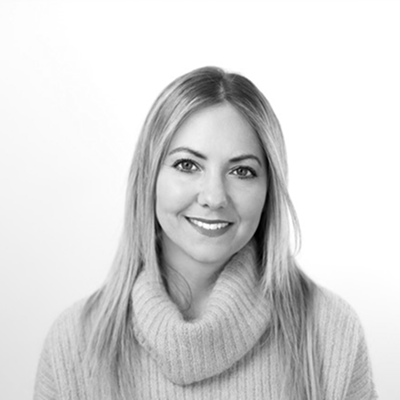
ASKING FOR A FRIEND
How do I get back my creativity when I feel dead inside?
ASKING FOR A FRIEND - QUESTION
Sharon explains that when your nervous system thinks it is under attack, creativity exits the building. Start by tending to your feelings, then ease back in with music, journaling, or playful, no-goal making. Renee reminds us that pressure strangles ideas, every time.
When creativity feels completely out of reach and you're struggling with feelings of emptiness, it can seem impossible to find your way back to that spark. This deeply personal question touches on something many creatives experience but rarely discuss openly—the intersection between mental wellbeing and creative expression.
This question was answered by Sharon Draper, a psychologist with 13 years of experience who specialises in helping people understand their emotional responses and build authentic connections with themselves, and Renee Hyde, client and agency leadership expert at Howatson+Company who has worked with major brands globally and understands the pressures creatives face in high-stakes environments.
Understanding the feeling comes first
Before attempting to force creativity back, Sharon emphasises the importance of addressing the underlying emotional state: "I would focus on the feeling first. I understand you want your creativity but we've got to look at the feeling first because feelings will influence everything."
She encourages exploring what might be causing that "dead inside" feeling—whether it's burnout from being overworked, loneliness, feeling lost without purpose or community, or a sense of hopelessness. "Just having more of an understanding of why you might feel this way can really help manage the feeling a little bit more and look at solutions," Sharon explains.
The nervous system and creativity connection
Sharon introduces the concept of polyvagal theory to explain why creativity becomes impossible during certain emotional states. She describes the nervous system like a ladder with three states: the bottom state (dorsal vagal) where we feel "hopeless and depressed and numb or dead inside," the middle state (sympathetic) involving fight-or-flight responses, and the top state (social engagement) where we feel "grounded in ourselves and connected to people."
"When we are creative, you can't be in a survival state," Sharon notes. "Creativity is only possible if you're in a present, mindful, grounded state." This explains why forcing creativity when feeling emotionally shut down simply doesn't work.
Practical steps to reconnect
Sharon offers several concrete strategies for moving from that shutdown state back towards creativity:
- Allow rest and recovery: "If you're in that shutdown state, your nervous system is telling you that you need a break, so I'd allow for some sort of rest and recovery."
- Connect with feelings through creative mediums: Use music or journaling to "try and connect to that feeling" because "numbness is usually protecting us from some sort of uncomfortable emotion."
- Embrace playfulness without goals: "I'd encourage some sort of medium and just doodle, try not to have a goal or an achievement that you're trying to focus on." Sharon suggests returning to childhood activities like colouring or play-doh—anything tangible done "for no reason so you're not feeling like this pressure to perform."
- Change your environment: Take mindful nature walks to "get out of yourself" and "connect with something outside of you as well as bigger than you," which can inspire awe and move you out of survival mode.
- Gentle social connection: Connect "gently with somebody or softly with somebody" that you feel safe with, even if it's not direct engagement.
Pressure kills creativity
Renee adds valuable insight about how pressure affects creative thinking, referencing HBDI profiles used at her agency: "Very few people go more intuitive or more into the creative realm under pressure. People go either analytical, give me the facts, or process driven, or emotional."
She reinforces Sharon's point about environment: "Creativity doesn't thrive in that space, so be aware of it. If you're feeling under pressure trying to break out of that space and kind of refresh, reset your environment."
When to seek additional support
Both experts acknowledge that sometimes these strategies may not be enough. Sharon notes: "If none of those really are helping, there might be a deeper issue and maybe seek support from a therapist."
Moving forward with compassion
Getting back your creativity when feeling emotionally depleted isn't about forcing inspiration—it's about creating the right internal conditions for creativity to naturally return. By addressing the underlying feelings first, allowing for rest, embracing playful experimentation without pressure, and gently reconnecting with yourself and others, you can begin to move from that shutdown state back towards the grounded presence where creativity thrives. Remember, acknowledging these feelings takes courage, and seeking support—whether through these strategies or professional help—is a sign of strength, not weakness.
our guests
Industry Leader
.png)
Renee Hyde
Howatson+Company
Mental Health Expert

Sharon Draper
The Conscious Project
Host

